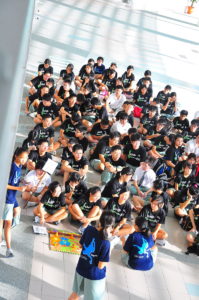Singapore’s Educational System Remains Top in the World
 The Singaporean education system maintained its ranking as the best in the world in the latest Trends in International Maths and Science Study, released on November 29.
The Singaporean education system maintained its ranking as the best in the world in the latest Trends in International Maths and Science Study, released on November 29.
The study, published by the International Association for the Evaluation of Educational Achievement, confirmed that students in East Asia, specifically Singapore, placed first in the world in science and math. Further analysis indicated that students in Singapore improved in addressing non-routine—or application—questions. Educators attribute this to a greater focus on inquiry-based learning, in which students are encouraged to discuss and reason more, even in Science-Technology-Engineering-Mathematics (STEM) fields. In particular, Singapore’s Ministry of Education claims that the study findings reflect an increased emphasis on thinking skills, which promote a more active learning environment.
Moreover, the survey found that, in addition to high scores, Singaporean students also have more positive attitudes towards learning. This appears to contradict the reputation of Singapore as a country that possesses a highly competitive educational environment and raises the question of how to find balance between rigor and enjoyment. Singapore’s educational system, while associated with high test performance, has been accused of serving as a “pressure-cooker” and placing a significant emphasis on testing and memorization instead of comprehensive learning.
In response to such criticisms, Singapore is trying to make learning more experiential. Ng Chee Meng, the Minister of Education, wants education to allow children to explore academics as well as other interests. To that end, some of the recent changes in the educational system include releasing grades without highlighting the highest and lowest scorers, integrating extra-curricular programs such as dance or drama into curriculums, and admitting students to schools based on non-academic talents.
In light of these changes, it remains to be seen whether Singapore will maintain its position as the best in the world, or if other, more memorization-based systems will supercede it.
